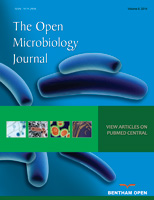Submission Tilte
Next-Generation Natural Antimicrobials: Innovative Strategies to Combat Microbial Resistance
Submission Abstract:
The rapid emergence of antimicrobial resistance (AMR) highlights the urgent need for innovative therapeutic strategies. This thematic issue focuses on the discovery, optimization, and advanced formulation of natural products and bio-inspired molecules to overcome microbial resistance. It will explore state-of-the-art approaches including omics-guided discovery, synthetic biology, and encapsulation technologies designed to enhance the stability, solubility, and targeted delivery of natural antimicrobials. Emphasis will also be placed on microbiome-derived metabolites, synergistic combinations with antibiotics, and eco-friendly production methods. By integrating molecular biology, biotechnology, and nanoscience, this issue aims to promote next-generation antimicrobial solutions with real-world applications in medicine, food, and the environment.




